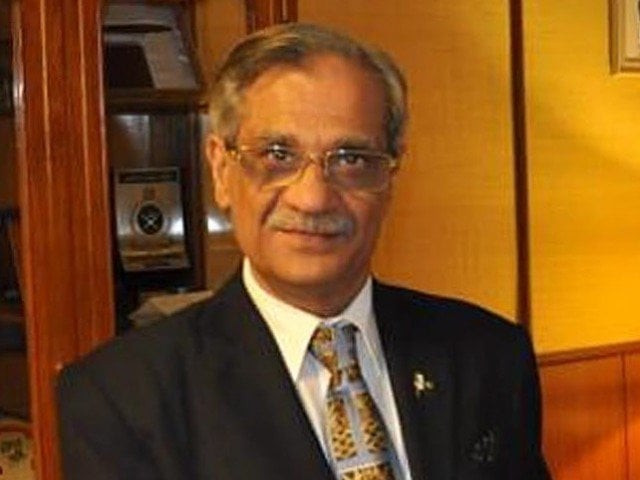Dozens seek review of ex-CJP's verdicts
SC receives 69 review petitions in second half of January

CJP Mian Saqib Nisar. PHOTO: FILE
According to a summary of cases from January 15 to January 31, 69 review petitions have been filed. At last count, the number reached 83. Thirty-six review pleas have been decided during the period. A total of 613 review cases were pending as of January 31.
Sources told The Express Tribune that most of these review petitions are against the former CJP’s verdicts in public interest matters like fake bank accounts, school fees, billboards, and cantonment cases.
A senior official admitted that the ratio of filing review petitions is higher after Justice Nisar’s retirement. He said several petitioners are requesting constitution of larger benches to hear their petitions against judgments of benches led by the former top judge.
The fortnightly summary says the apex court led by CJP Asif Saeed Khosa has not yet entertained any constitutional petition and only 115 constitutional petitions are pending. The incumbent CJP also has not taken any suo motu notice.
Currently, 26 suo motu cases are pending. Unlike past, no human rights application has been entertained on the judicial side. Currently, while 169 human rights cases are pending. It is learned that the apex court’s HR cell has also been restricted from entertaining applications.
The summary further reveals that 940 cases have been instituted in last 15 days of January while 599 cases were decided during the same period. On December 31, 2018, the total pendency of cases was 40,535, which was reduced to 39,091 on January 31.
Full court meeting
In the full court meeting held on February 6, CJP Khosa sought views of the judges on how to ensure fast-track disposal of cases in order to reduce pendency.
According to the minutes of the meeting, a lengthy discussion took place on the issue of adjournments, handling of petitions, disposal of reviews, CMAs, categorisation of cases, the imposition of costs on account of undue adjournments, disposal of service matters, civil suits, old cases, and fresh instituted cases.
It was decided that five of the senior most judges may identify categories of cases so that those could be fixed before benches to be headed by them. It was also decided that adjournments should be discouraged and, where appropriate, the court may impose costs to address the issue.
Review petitions will be fixed before appropriate bench/author judges in the week immediately following its institution. Limine control should be exercised at the petition stage in order to reduce the intake of cases involving no questions of law, it said.
The full court discussed the issue about the writing of judgment in case of dismissal of a petition for leave to appeal. There was a consensus that since the petition is like an application if leave is refused by the court and the petition is dismissed in limine, a very short order should suffice so that time of the court is not wasted. However, if the judgment of lower forum is reversed, detailed reasons may be recorded.
The documents reveal that the full court decided that in case the impugned judgment is maintained at petition stage and grant for leave is refused, the briefest possible order may be passed.



















COMMENTS
Comments are moderated and generally will be posted if they are on-topic and not abusive.
For more information, please see our Comments FAQ